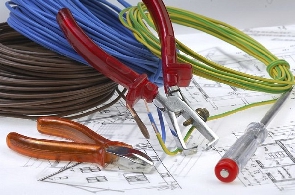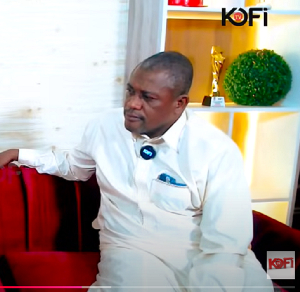The Energy Commission Executive Secretary, Oscar Amonoo-Neizer, has revealed that his outfit in collaboration with the Ghana Standard Authority is working on a Legislative Instrument (L.I), which when approved will rid the market of substandard electrical cables.
This, he said, will help curb the consistent fire outbreaks experienced in the country. “There is an L.I. coming very soon, wherein we have worked with the Ghana Standard Authority to prescribe a certain standard of cables that can only be used in Ghana. This L.I. is coming to give us power to stop the sale of cables that do not meet prescribed standards of the Ghana Standard Authority.
“We have been able to work with certified wiring professionals as well, so that in collaboration with them and the Ghana Standard Authority those standards will be implemented. We will get rid of substandard cables and wiring materials so as to reduce the rate of fire outbreaks,” he told the B&FT.
He added that the L.I. is expected to come into existence by end of this year, stating that the populace must collaborate and work hand-in-hand with regulators to combat fire outbreaks and other dangers posed by inferior materials.
He made these remarks at the 10th anniversary launch of the Electrical Wiring Programme (EWP) in Accra. It was themed ‘Celebrating a decade of regulating the electrical wiring industry in Ghana’.
The Energy Commission disclosed that it has so far licenced 14,000 electricians since inception of the EWP.
The EWP training programme forms part of processes through which the Commission certifies electricians and electrical inspectors in line with the Electrical Wiring Regulations, 2011 (L.I. 2008).
The deputy Minister of Energy, Herbert Krapah, praised the commission for the strides made in training electricians, stressing that this will ensure professionalism and adherence to safety and standards.
“The electrical wiring industry was largely perceived as informal, and thought to be full of unqualified practitioners. This not only undermined public trust but also exposed all of us to the dangers of sub-standard wiring in our homes and workplaces.
“The days of practitioners using crude methods to test their own work due to expensive test instruments are fast fading. The Commission’s negotiated discount scheme on such instruments is making it possible for completed wiring works to be tested more professionally,” he stated.
He also encouraged owners of buildings that are at least 10 years old to hire electrical professionals to assess the electrical wiring of those buildings, determine how it is installed and if necessary recommend fixing it.
Board Chairman of the Commission, Professor Ebenezer Oduro Owusu, pledged his outfits’ commitment to measures which further ensure sanity in the electrical wiring space.
As part of the celebration, activities earmarked for the year-long event include a public lecture, sensitising electricians and the public to the EWP and L.I. 2008, and donations by the Commission.
Business News of Thursday, 20 April 2023
Source: thebftonline.com

















